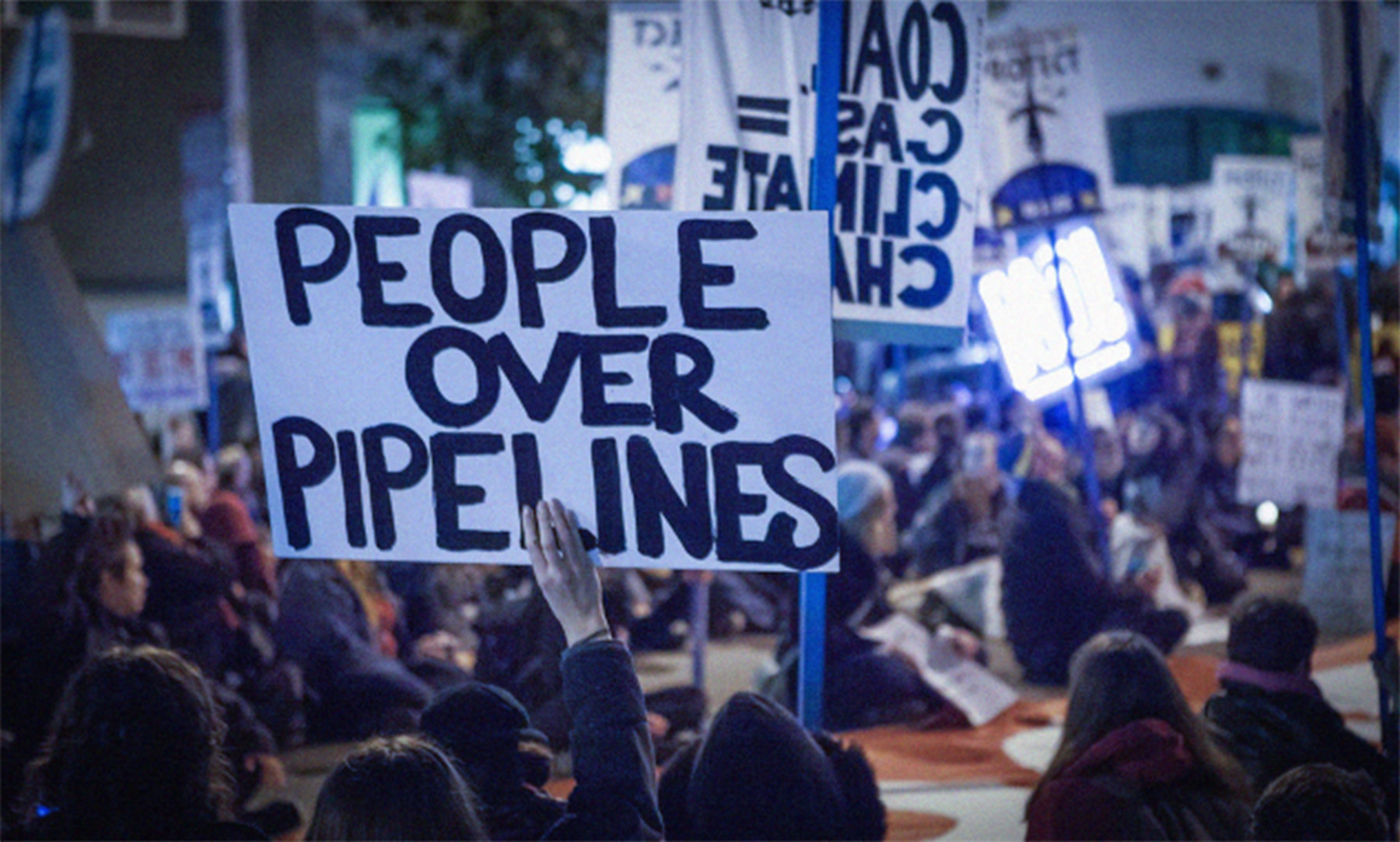Vancouver – As the BC and federal governments continue to push for LNG (liquefied natural gas) development and export, a major new study details the consequences of ramping up fracking and LNG production: not only serious environmental and climate impacts, but grave risks to Canada’s energy security if conducted at the scale envisaged by the BC government.
David Hughes, former federal government geoscientist and expert in unconventional energy, is the author of A Clear Look at LNG: Energy security, environmental implications and economic potential, released today by the Canadian Centre for Policy Alternatives’ BC Office.
Hughes’s study considers in detail six possible scenarios for BC LNG export development: from zero export terminals built to the five that the provincial government is promising.
“If BC goes ahead with five terminals, it would require four to five times the current BC gas production levels,” says Hughes. “This means drilling up to 43,000 new fracked wells in the northeast by 2040, and using up to 22,000 Olympic swimming pools of water per year in the fracking process. We’re talking about serious environmental impacts.”
Despite efforts to brand LNG as a “clean” fuel, nearly all natural gas for export would be extracted by fracking, which uses massive amounts of water, produces high levels of greenhouse gases through fugitive methane releases, and has been linked to water contamination and increased seismic activity.
“Even scenarios that the BC government would consider less than ideal, like three terminals, would require 3.5 times more gas than current proven gas reserves, and 32,000 more wells,” says Hughes.
Hughes notes that the BC government appears to be misrepresenting the amount of gas available for export. According to the BC Oil and Gas Commission (OGC), there are about 42.3 trillion cubic feet (tcf) of proven raw gas reserves, with another potential 416 tcf of “remaining marketable resources,” which is a less certain number, based on estimates and extrapolations. Yet as recently as last week, the BC government claimed that BC has a natural gas supply of 2,933 tcf to support domestic and export markets, six times the OGC’s estimate.
Beyond the environmental damage, Hughes raises grave concerns about Canada’s future energy security, and the National Energy Board’s apparent failure to ensure domestic energy needs can be met. He points out that the NEB has approved 12 LNG export terminals with a total of 251 trillion cubic feet (tcf) of LNG export capacity over a 20-25 year life, with a further seven under review. Although few expect more than five terminals to be built, in theory these approvals mean that they could be, which would require ten times the surplus gas that the NEB’s own modeling has shown to be available.
“So not only is the NEB approving exports of gas that its latest production forecasts show is unavailable, but, if corporations do somehow export this much gas, Canada will have to turn around and import natural gas just to meet our own needs. If the NEB forecasts are to be believed, anything more than one terminal will see Canada become a net importer of natural gas.”
The study also shows that despite BC government claims, there is no evidence that exporting LNG will reduce global greenhouse gas emissions. Large amounts of gas must be consumed just to create and transport LNG and there are significant methane leaks during the production process. Research has further shown that LNG exports to China would not reduce that country’s emissions any more than simply building state-of-the-art coal plants, if full-cycle emissions are considered.
“The provincial and federal governments are racing to liquidate oil and gas as fast as possible,” says Hughes. “But we need to slow down and treat this like the non-renewable resource it is — to protect our environment, our economy and Canada’s energy security.”
Thanks to Vancouver Foundation for partially funding this paper.
-30-
For media inquiries, contact: media@policyalternatives.ca.


